How did the post-war "Bugs"
Categories: Auto | Europe | History
By Pictolic https://pictolic.com/article/how-did-the-post-war-bugs.htmlIn 1934, Adolf Hitler conceived the idea of providing every German family with a motorized vehicle and hired car designer Ferdinand Porsche to create a "people's car", which was called Volkswagen. He was supposed to transport a family of five people at a speed of 100 km / h, while spending a liter of gasoline for every 13.6 km, as well as being inexpensive to maintain and replace spare parts.
On May 26, 1938, Hitler himself laid the foundation stone for the construction of a factory in Wolfsburg for the mass production of cars, but during the Second World War, military vehicles were produced there. After the end of the war, in 1945, Major Ivan Hurst of the British Army was assigned to take over the management of the bombed factory. He persuaded the British troops to order 20,000 cars, and soon the factory was producing 1,000 cars a month. At the same time, Volkswagen began to be called "Beetles" for their rounded appearance.
In the following decades, the production of "Beetles" grew rapidly. They have become one of the most popular and recognizable cars in the world. In 2003, when the last Beetle rolled off the assembly line, over 21.5 million were produced.
These photos demonstrate an efficient production process, thanks to which the "Bugs" appeared on the streets of the whole world. This is the time when the company was at the peak of its reputation, long before the recent scandal with the falsification of data on the emission of harmful substances.
(19 photos in total)
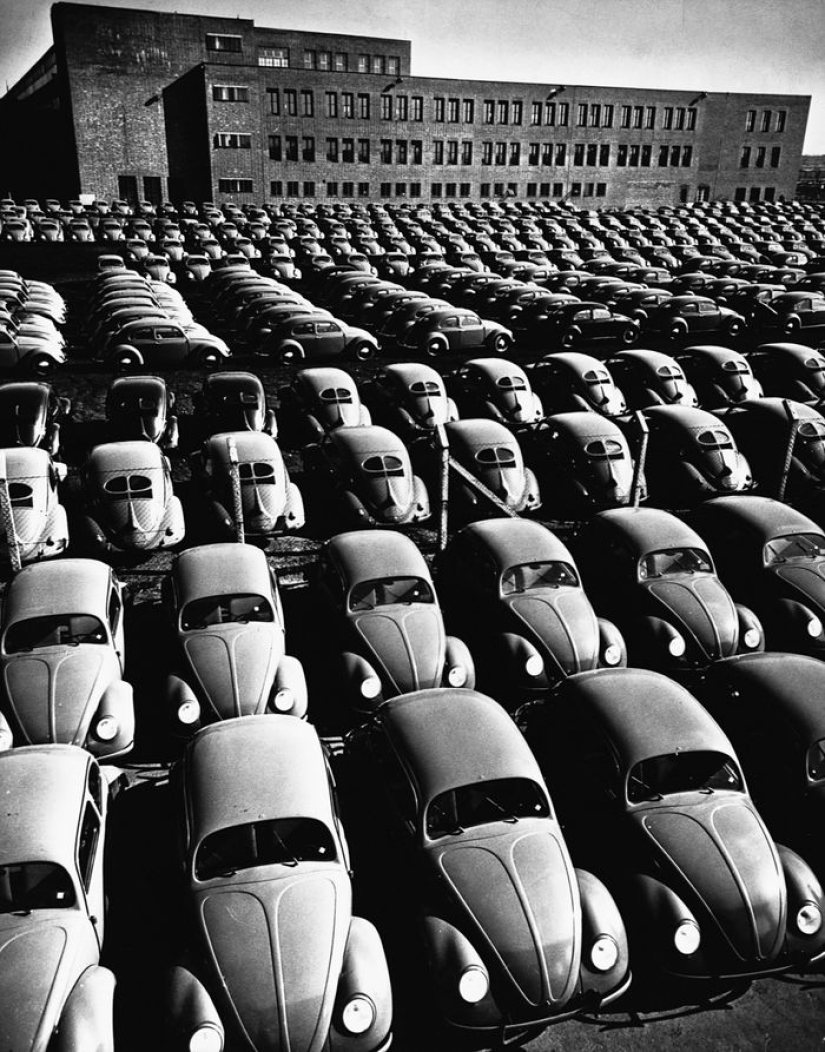
1953.
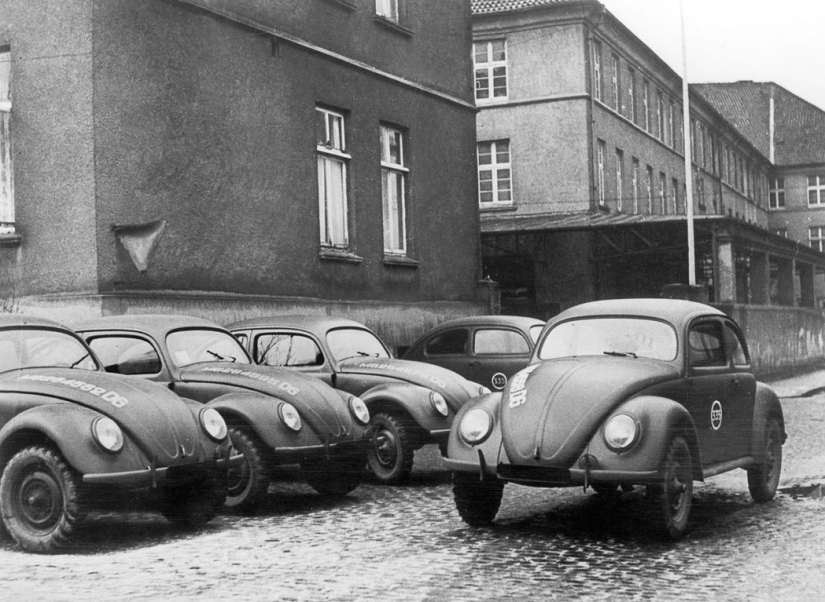
1945 — the first "Beetles" begin to be produced in West Germany.
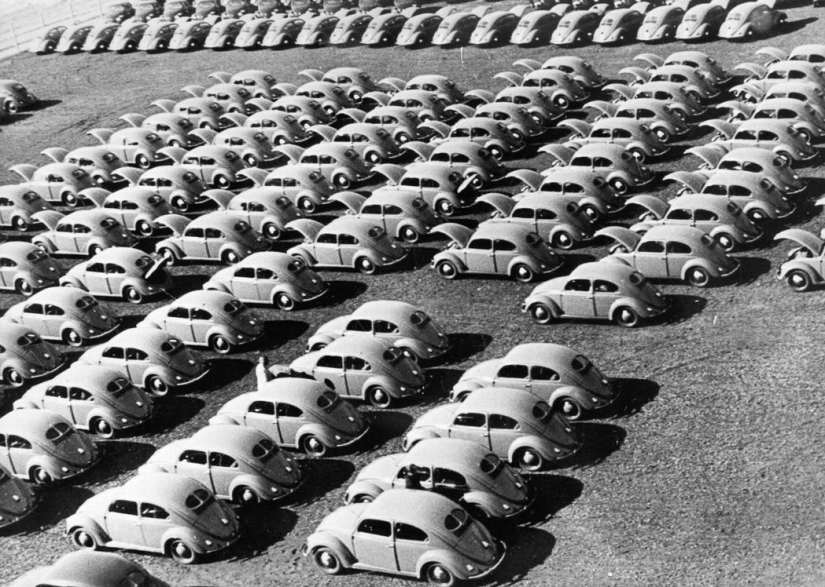
Around 1950.
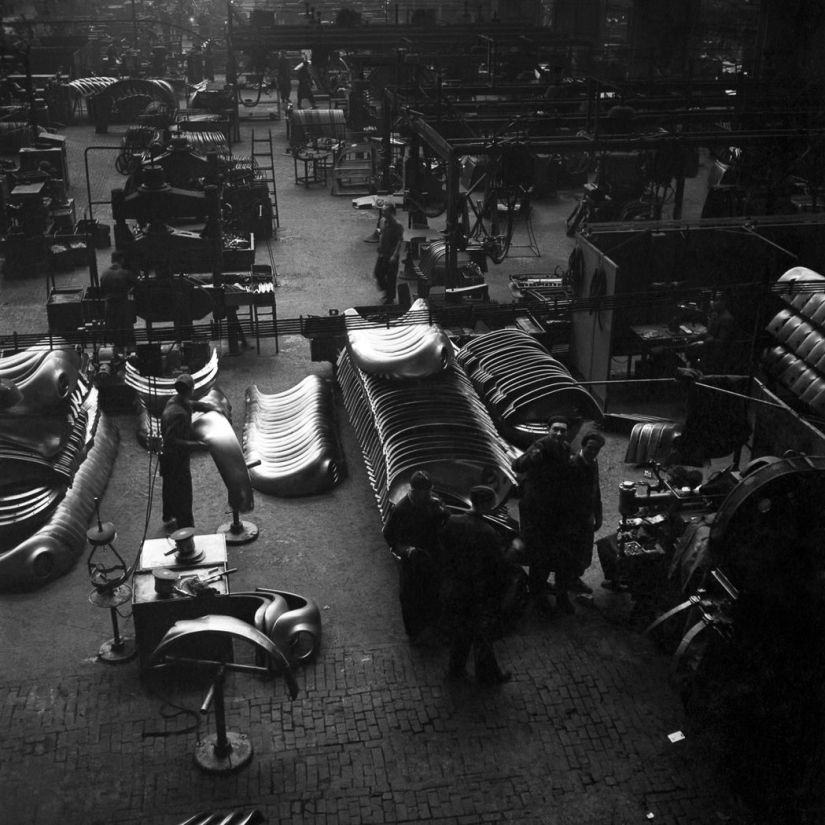
1952.
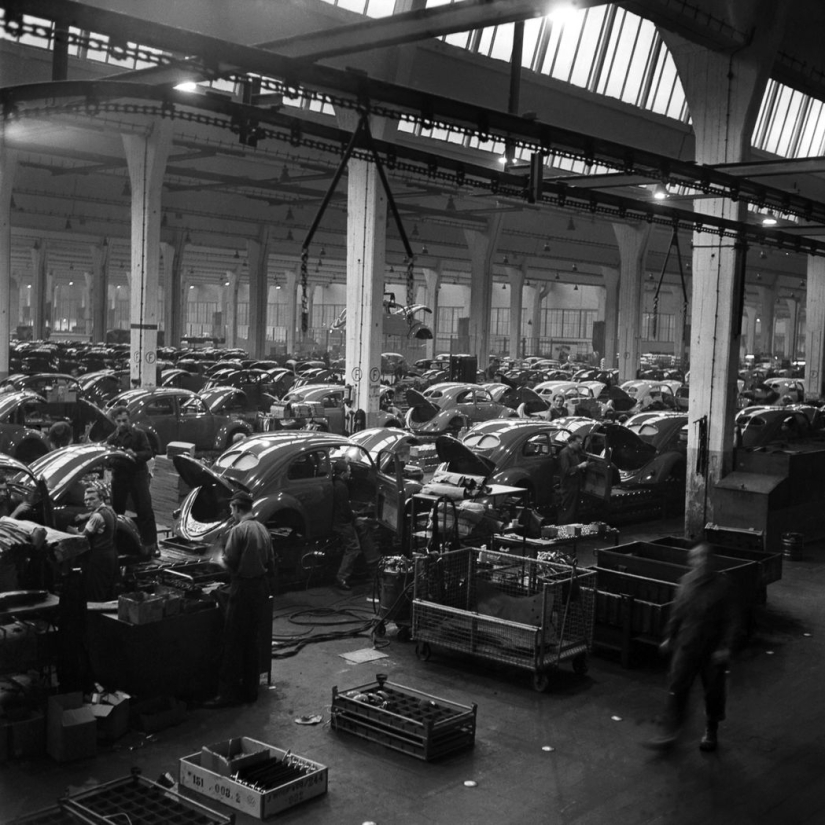
1952.
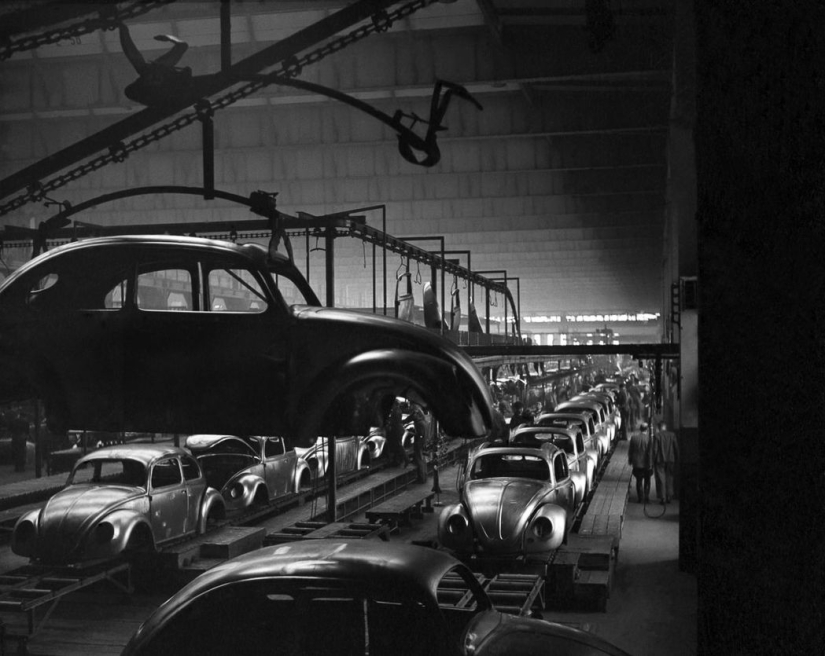
1952.
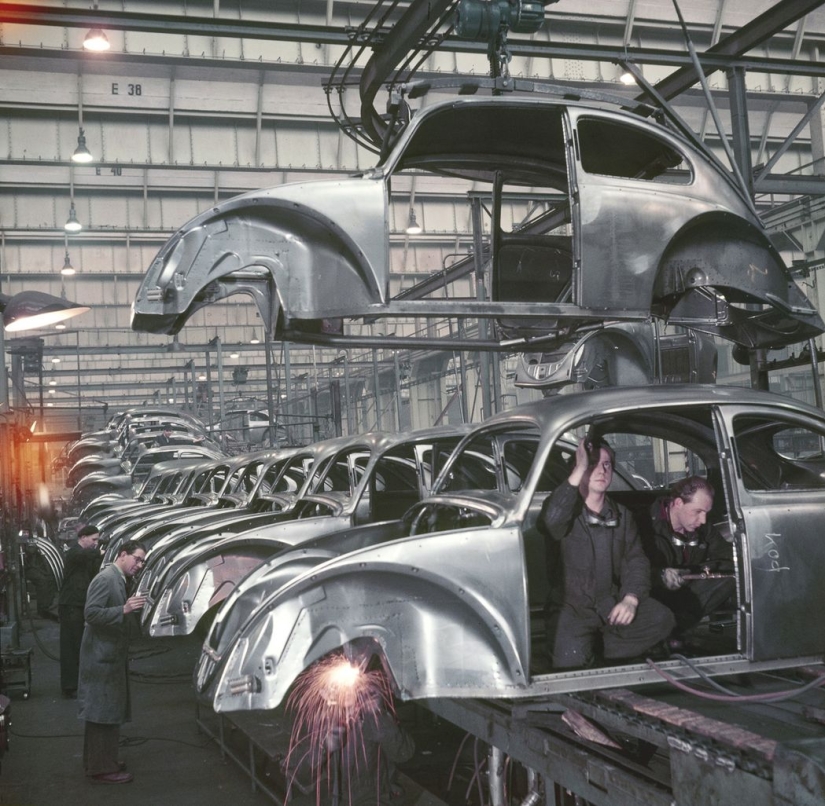
1952.
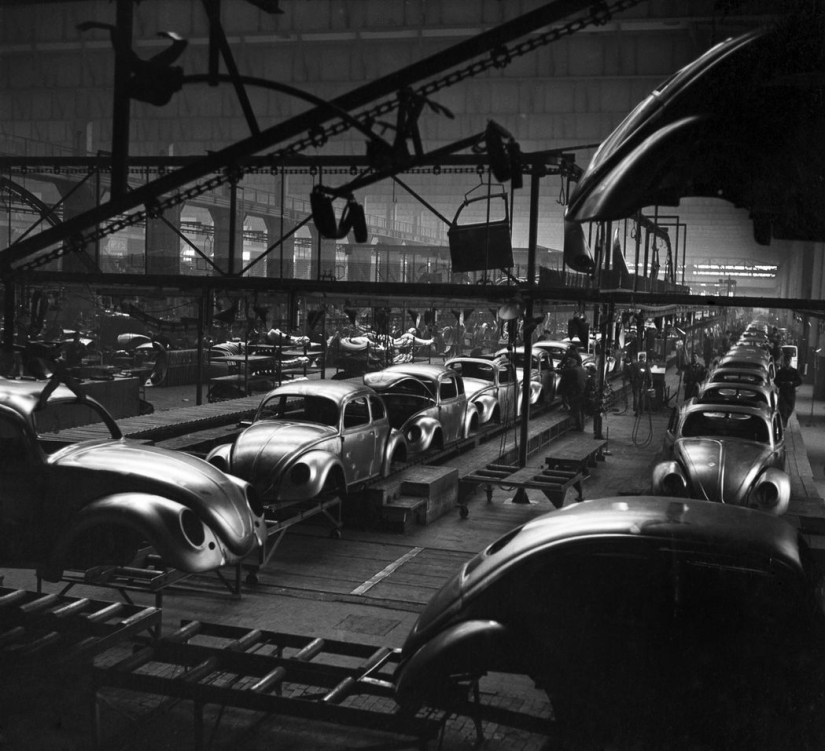
1952.
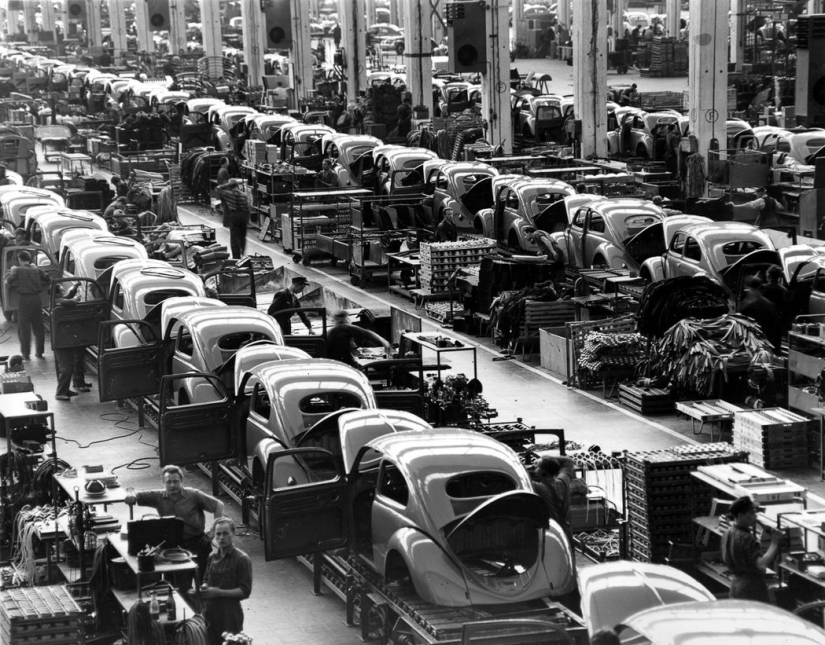
1954.
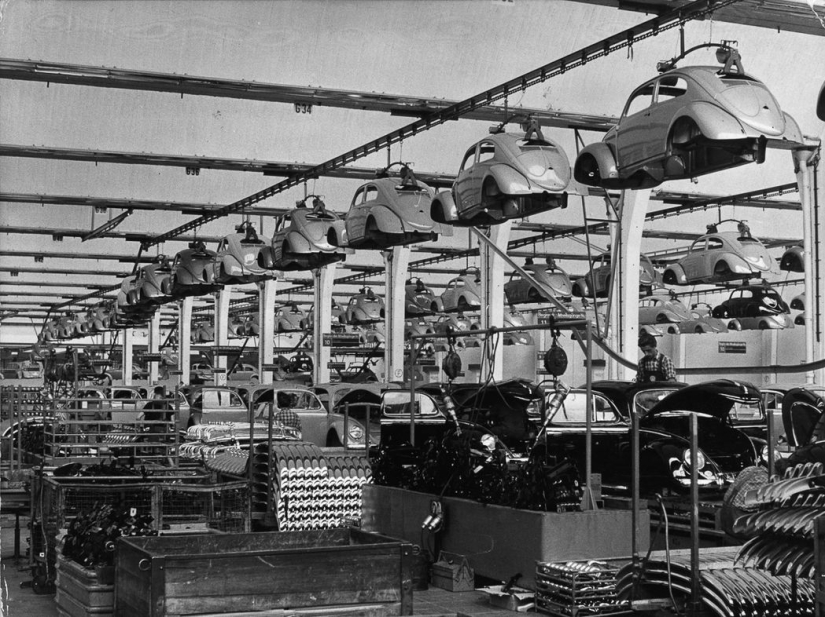
Around 1955.
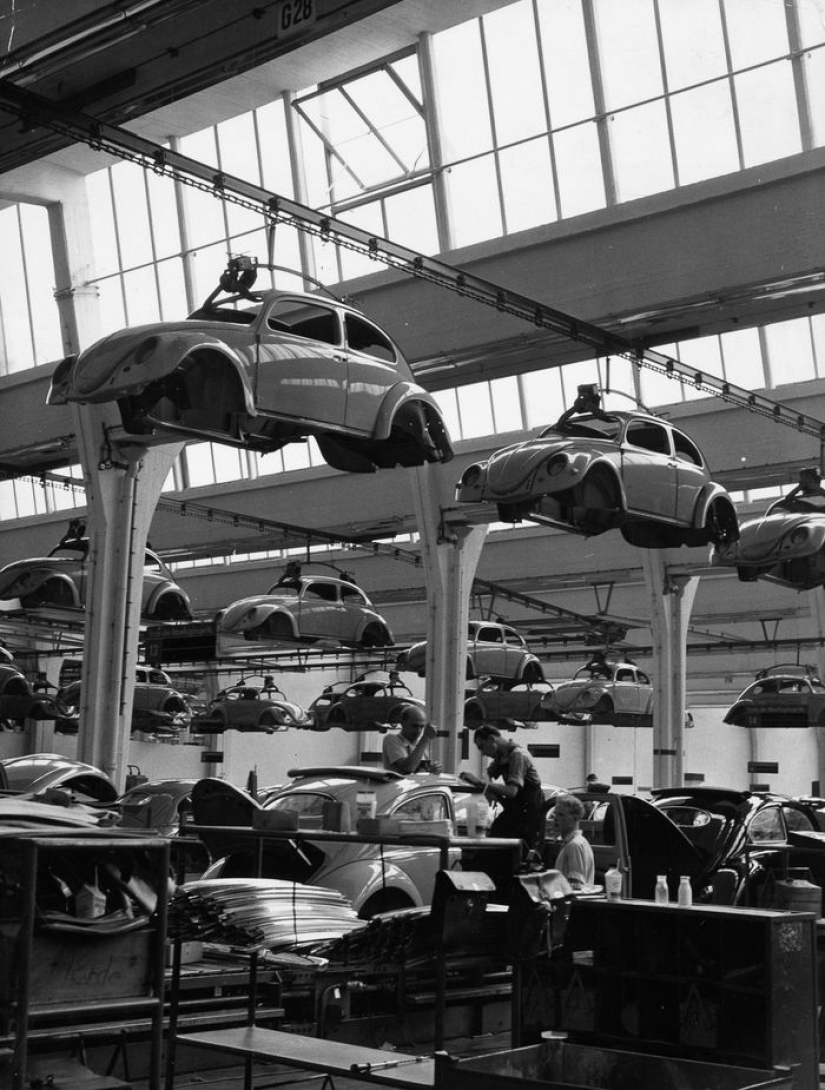
Around 1955.
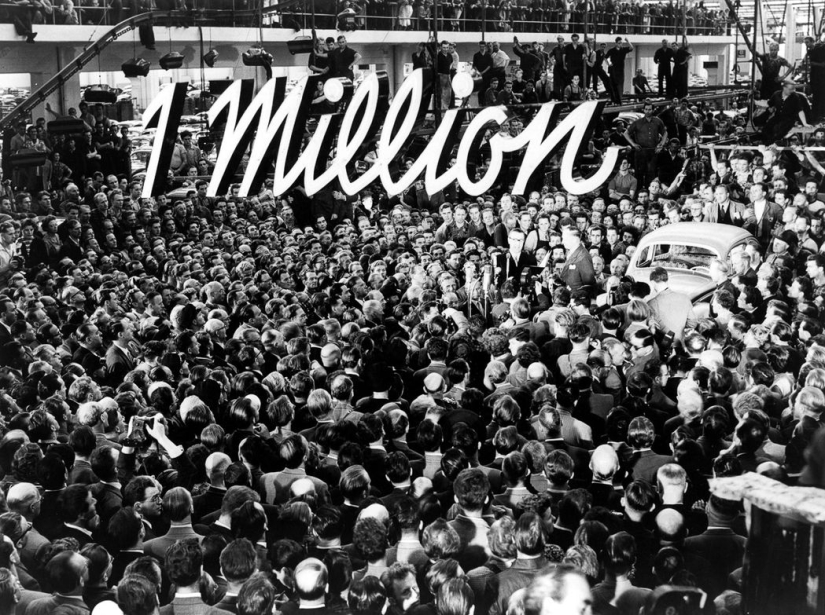
1955 — Volkswagen celebrates the release of the millionth "Beetle".
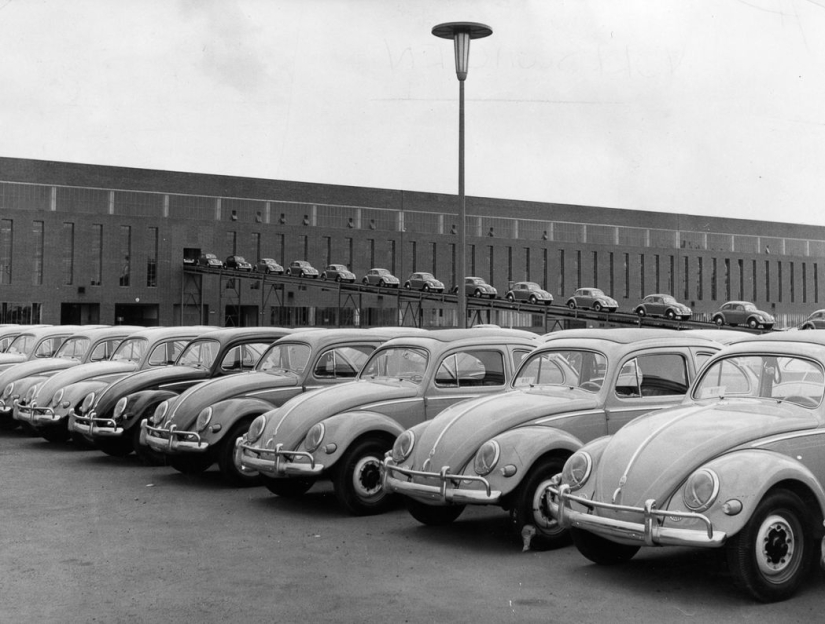
1956.
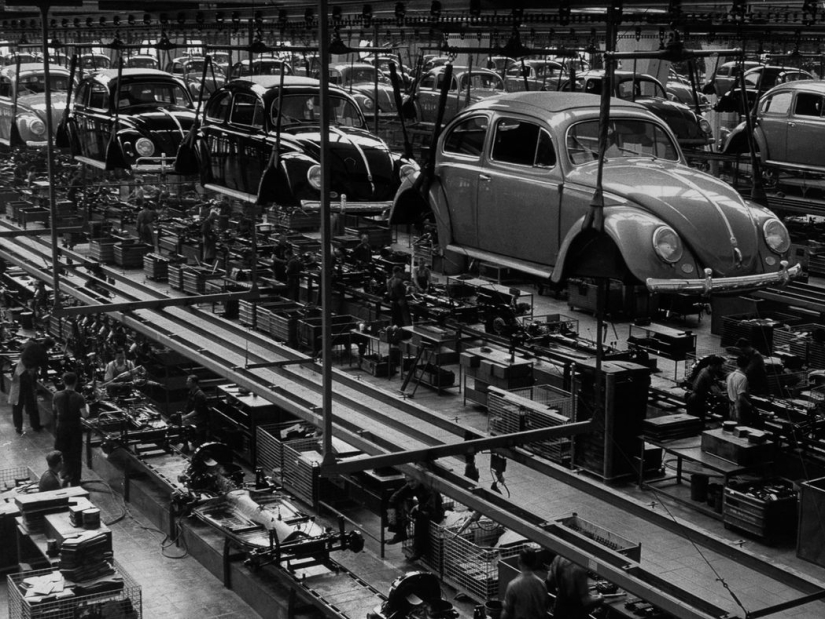
1956.
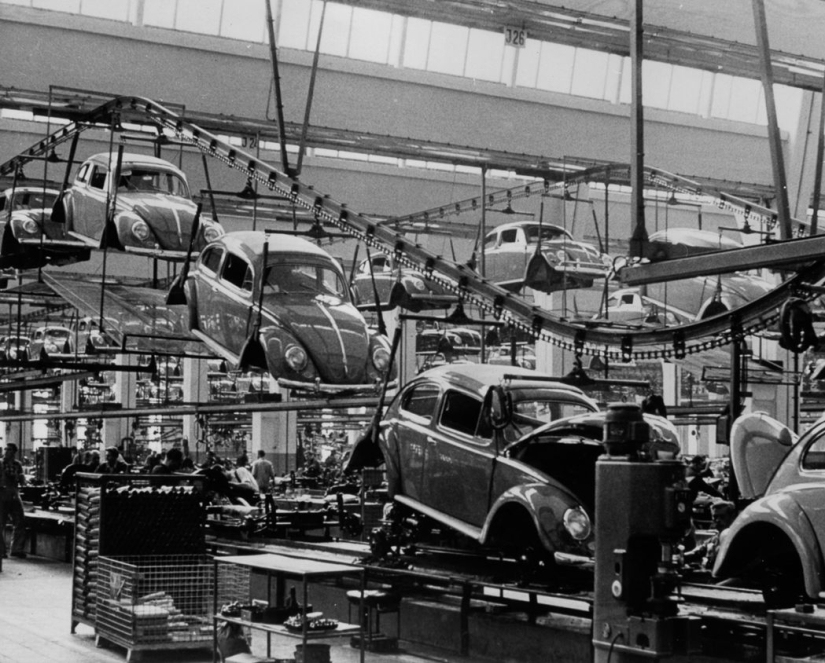
1956.
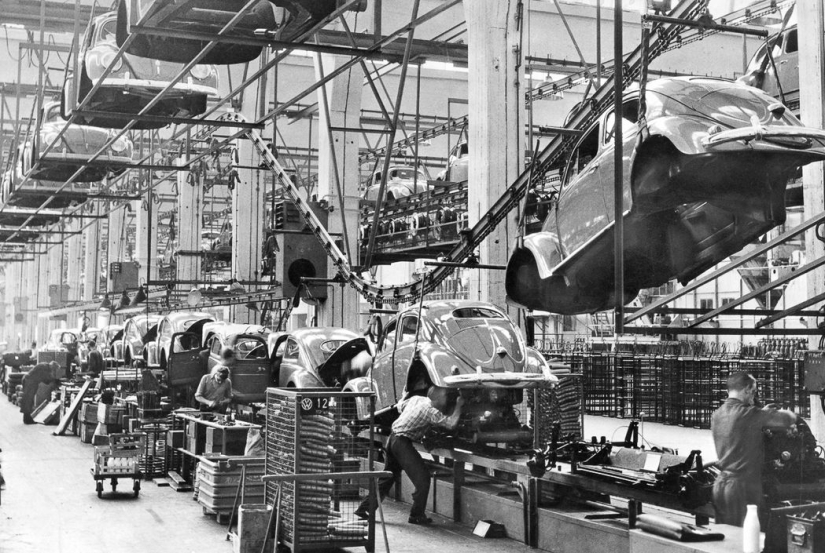
1958.
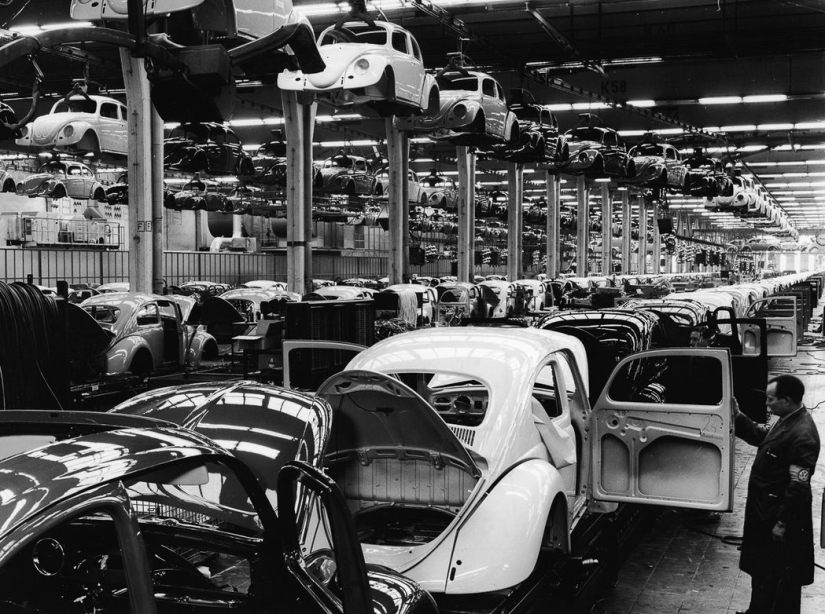
Around 1960.
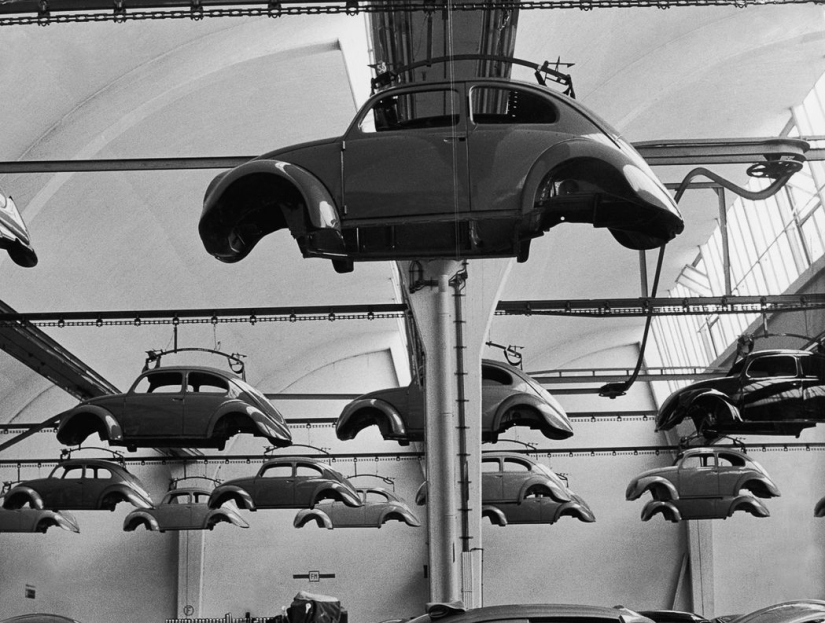
1960.
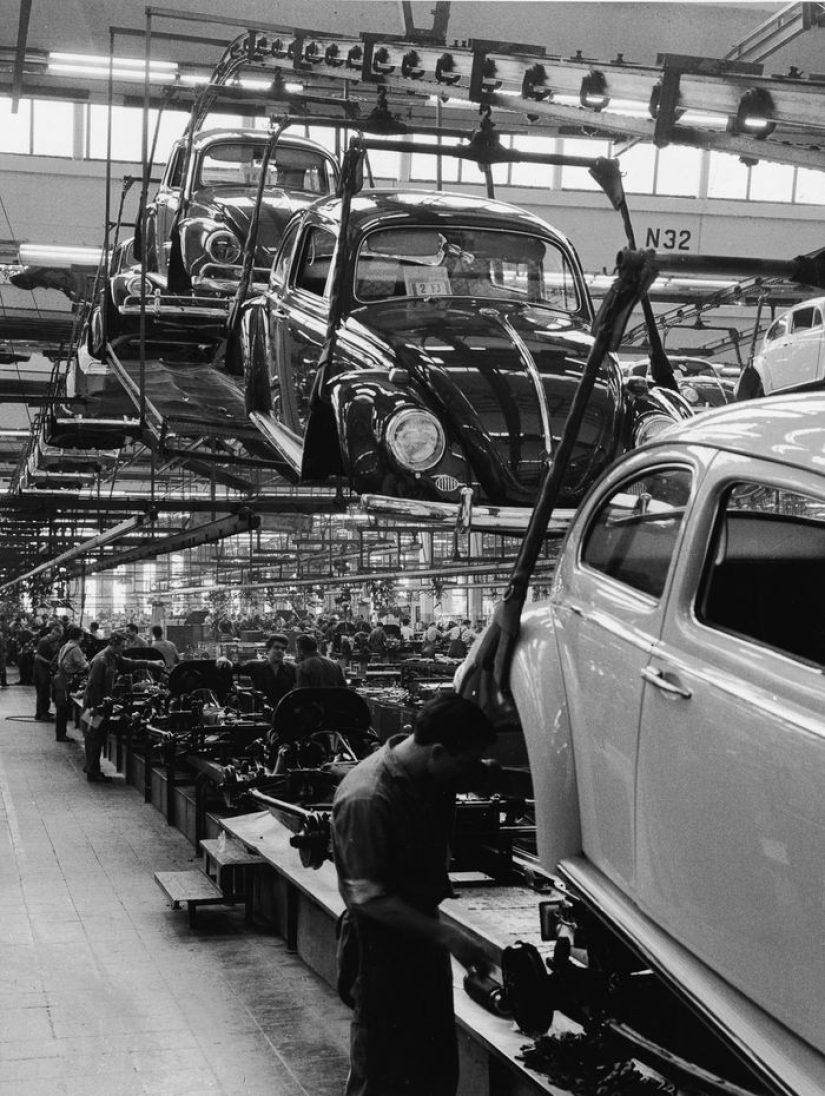
Around 1960.
Keywords: Volkswagen | Car | Germany | Factory
Post News ArticleRecent articles

It's high time to admit that this whole hipster idea has gone too far. The concept has become so popular that even restaurants have ...

There is a perception that people only use 10% of their brain potential. But the heroes of our review, apparently, found a way to ...
Related articles

About each nation there are stereotypes. For example, the Germans say that they love the "Ordnung", discipline and purity. This ...

Winter — it is a difficult time for motorists, especially if the vehicle has to be left under the open sky. But besides the ...

50 years ago, the bloody history of the RAF, the most brutal terrorist organization in Europe, began. Its creators were not Islamic ...

New Year's is a time to surprise and delight loved ones not only with gifts but also with a unique presentation of the holiday ...